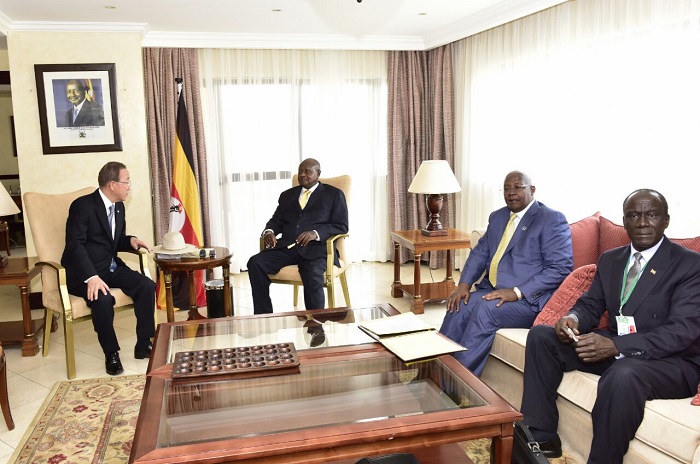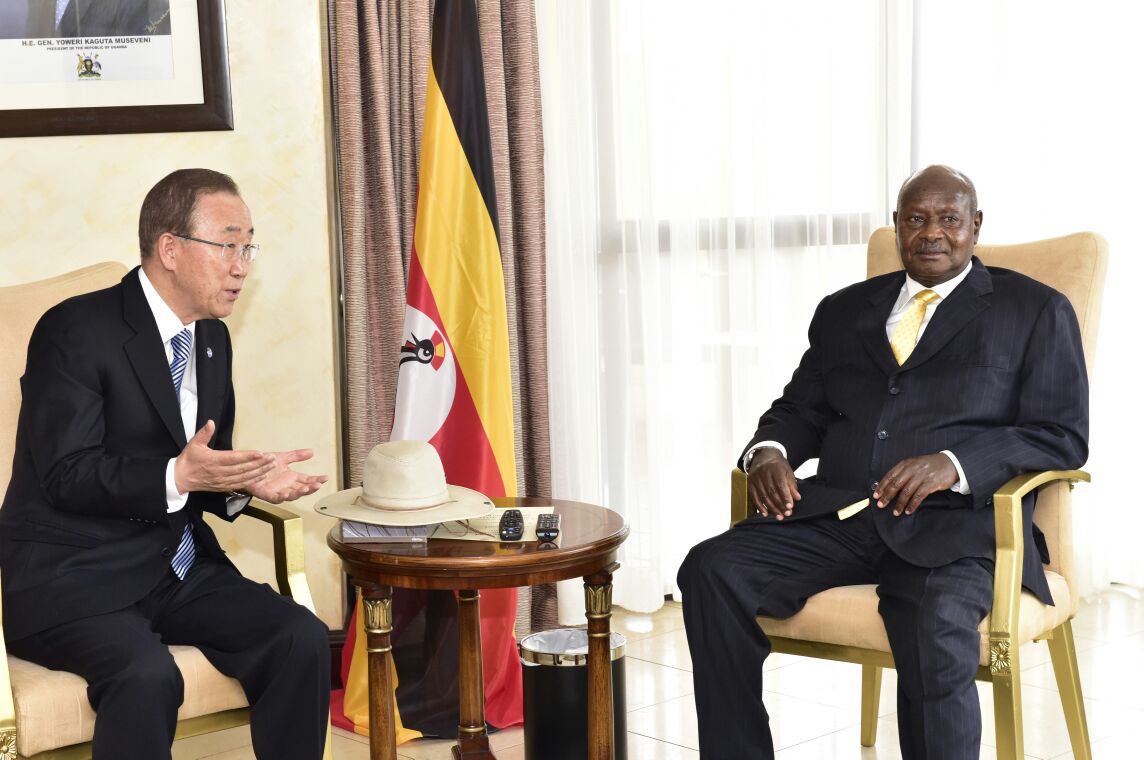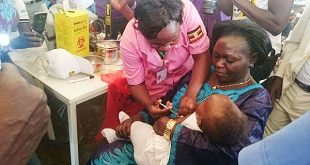
President Yoweri Museveni and United Nations (UN) Secretary General Ban Ki Moon have discussed the conflict in South Sudan, with the two leaders pushing for a strong message to the warring factions.
Museveni however disagreed with a UN proposal to impose an arms embargo saying this would create a vacuum and plunge the newest nation in the world into further chaos like was the case in Somalia.
“I don’t agree with the proposal on the arms embargo. What is happening in South Sudan is sectarian politics where one partisan community is fighting the other. When you impose an embargo on South Sudan you destroy the local force on which you need to build a strong integrated army,” Museveni told Ban Ki Moon at the meeting in Kigali.
The two leaders met on the sidelines of the ongoing African Union (AU) summit in Kigali where they discussed the UN Secretary Generals’ proposals to the United Nations Security Council. Ban Ki Moon proposed to send a strong message to the warring factions in South Sudan by imposing an arms embargo, sanctions on the people responsible for the violence and fortifying and strengthening th eUN mission in the country.
Ban Ki Moon said the violation of the ceasefire agreement by the two leaders in South Sudan makes the UN position very difficult and called on Uganda’s president Museveni as the guarantor of the peace process along side the AU and IGAD to send out a clear unified message to South Sudan.

Integrate the forces
Museveni said he wants to push for the two factions to work together through integration of forces instead of weakening them further.
“We can sew these factions together. Forces can be separated and used as building blocks. There must be a balance of all the three forces who must be dealt with carefully towards peace and democracy.”
“If you maintain a situation of no democracy, you are dis-empowering the people. If they must have elections, they will be forced to find alliances and democracy will force them to work together. Without democracy, they will be forced to look for external forces,” he said.
Museveni said with a well-grounded and facilitated timetable, there is a need for the of integration of forces and a fund for resettlement and rehabilitation of demobilized militias and soldiers.
If you maintain a situation of no democracy, you are dis-empowering the people. If they must have elections, they will be forced to find alliances and democracy will force them to work together. Without democracy, they will be forced to look for external forces
At the meeting, Museveni made three proposals that need to be immediately handled including a regional protection force (in the transition period) for South Sudan Vice President Riek Machar who does not trust SPLA for his protection, no new fighting in Juba and working towards elections and democracy as soon as possible.
“Deal with them carefully and work towards peace and elections. Votes will force them into alliances. Democracy will force them to work together. Now they know they are not accountable to the people,” he said.
The two leaders noted that despite receiving unconditional support regionally and internationally, have squandered the good will that was so generously given at the birth of the new nation. Recent clashes between South Sudan government and opposition forces left some 272 people, including 33 civilians dead.
****
editor@independent.co.ug
 The Independent Uganda: You get the Truth we Pay the Price
The Independent Uganda: You get the Truth we Pay the Price


